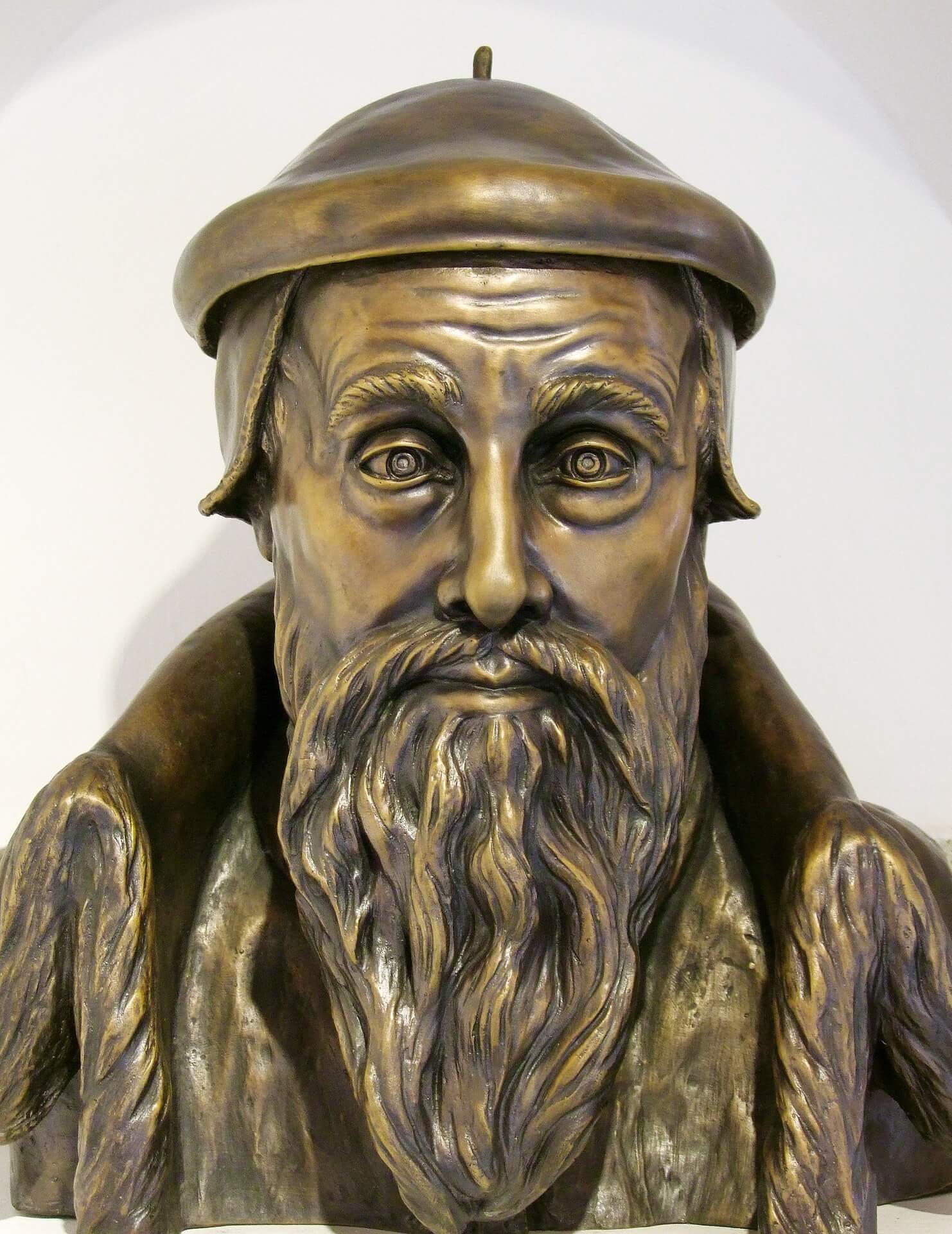(Reprobation the concomitant of election and an act of God’s will, 1–3)
1. Election—but no reprobation?
Now when human understanding hears these things, its insolence is so irrepressible that it breaks forth into random and immoderate tumult as if at the blast of a battle trumpet.
Indeed many, as if they wished to avert a reproach from God, accept election in such terms as to deny that anyone is condemned. But they do this very ignorantly and childishly, since election itself could not stand except as set over against reprobation. God is said to set apart those whom he adopts into salvation; it will be highly absurd to say that others acquire by chance or obtain by their own effort what election alone confers on a few. Therefore, those whom God passes over, he condemns; and this he does for no other reason than that he wills to exclude them from the inheritance which he predestines for his own children.-Calvin, J. (2011). Institutes of the Christian Religion & 2 (J. T. McNeill, Ed.; F. L. Battles, Trans.; Vol. 1, p. 947). Westminster John Knox Press.
John Calvin “absurdity” is Paul’s reason to break out in praise of God. Joining the Elect are those saved by the deliverer who comes out of Zion, to join the Elect and be Israel’s “fullness.” Together with the Gentiles, these are “all Israel”:
7 What then? Israel has not obtained what it seeks; but the elect have obtained it, and the rest were blinded.
…
11 I say then, have they stumbled that they should fall? Certainly not! But through their fall, to provoke them to jealousy, salvation has come to the Gentiles.
12 Now if their fall is riches for the world, and their failure riches for the Gentiles, how much more their fullness!
…
23 And they also, if they do not continue in unbelief, will be grafted in, for God is able to graft them in again.
24 For if you were cut out of the olive tree which is wild by nature, and were grafted contrary to nature into a cultivated olive tree, how much more will these, who are natural branches, be grafted into their own olive tree?
25 For I do not desire, brethren, that you should be ignorant of this mystery, lest you should be wise in your own opinion, that blindness in part has happened to Israel until the fullness of the Gentiles has come in.
26 And so all Israel will be saved, as it is written: “The Deliverer will come out of Zion, And He will turn away ungodliness from Jacob;
27 For this is My covenant with them, When I take away their sins.”
28 Concerning the gospel they are enemies for your sake, but concerning the election they are beloved for the sake of the fathers.
29 For the gifts and the calling of God are irrevocable.
30 For as you were once disobedient to God, yet have now obtained mercy through their disobedience,
31 even so these also have now been disobedient, that through the mercy shown you they also may obtain mercy.
32 For God has committed them all to disobedience, that He might have mercy on all.
33 Oh, the depth of the riches both of the wisdom and knowledge of God! How unsearchable are His judgments and His ways past finding out!
34 “For who has known the mind of the LORD? Or who has become His counselor?”
35 “Or who has first given to Him And it shall be repaid to him?”
36 For of Him and through Him and to Him are all things, to whom be glory forever. Amen. (Rom. 11:7-36 NKJ)
Do the math. In verse seven the Elect obtained salvation, the rest of Israel were blinded, but later saved by Christ. They plus the Gentiles are the “fullness”, “All Israel.”
Therefore, Calvin was wrong, those who were not of the elect did acquire what Calvin thought impossible, what “election alone confers on a few.” Clearly, God bestowed what election confers, “on the fulness” so all Israel would be saved.
Christ also taught the binary path to salvation, in the judgment of the Sheep and Goats (Christendom from all the nations), Christ’s “brethren” (the Elect) are seated with Him as He judges these members of Christendom who failed to commit to Christ before He came. Judgment begins first with the house of God (1 Pet. 4:17):
33 “And He will set the sheep on His right hand, but the goats on the left.
34 “Then the King will say to those on His right hand,`Come, you blessed of My Father, inherit the kingdom prepared for you from the foundation of the world:
35 `for I was hungry and you gave Me food; I was thirsty and you gave Me drink; I was a stranger and you took Me in;
36 `I was naked and you clothed Me; I was sick and you visited Me; I was in prison and you came to Me.’
37 “Then the righteous will answer Him, saying,`Lord, when did we see You hungry and feed You, or thirsty and give You drink?
38 `When did we see You a stranger and take You in, or naked and clothe You?
39 `Or when did we see You sick, or in prison, and come to You?’
40 “And the King will answer and say to them,`Assuredly, I say to you, inasmuch as you did it to one of the least of these My brethren, you did it to Me.’ (Matt. 25:33-40 NKJ)
Therefore, Reprobation is not the concomitant of election. God’s Election of some did not close the door on others who would repent, and believe if given a chance.
